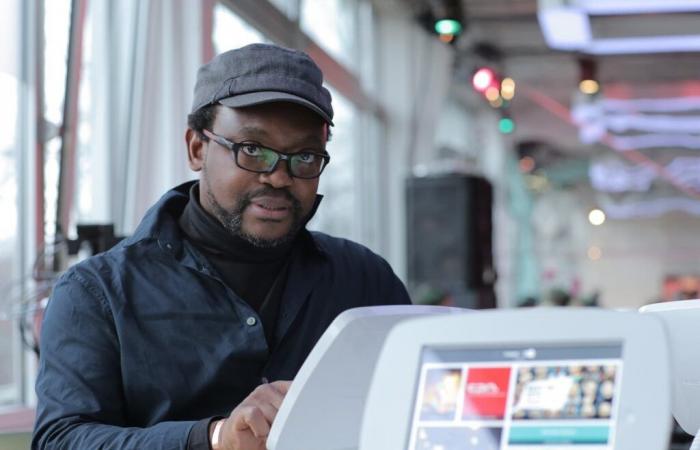
Welcome » Africa » “The African drama makes people who speak in a foreign language believe that they are intellectuals”
In this column published by Cameroonian filmmaker Jean-Pierre Bekolo, he takes a look at capitalism in Africa.
Read his text here:
“The drama of school in Africais to make people who string together sentences in a foreign language believe that they are intellectuals. Now, on a completely practical level, they produce nothing that can relieve the mass of their miserable pains…” When I read this, taken from a wall, only one answer comes to mind: you suffer from capitalism and nothing else. You suffer from participating in a system that others wish was different. Doesn’t capitalism, from Africa where everything is bought and sold, place us at the bottom of the pyramid?
The first intellectuals who addressed this question, as the author asks, were the Marxists. Marxist theories question the society that makes us suffer. Take, for example, the relationship between labor and capital: we create a business together; I bring the capital, and you are content to work in the company, you even work more than me and are the employee. When you die, your children inherit nothing, because you didn’t put in the capital, even though you built the business with me. This shows that as long as we accept the primacy of capital over labor, a deep injustice will persist in this system that we consider natural. However, capitalism is not natural.
So the work you ask of the intellectuals has no chance, because it has already been done, but the people have chosen capitalism. It is enough to see how, on a small scale, capitalism is destructive. Let’s take the example of a talented artist who needs musicians for his band. The musicians, in what they call “gumbo”, demand that the artist manage to pay them, otherwise they do not accompany him. This artist, who already has nothing and who is trying to create wealth with his art, is thus faced with the inability to finance his talent. Unable to show what he is capable of, he ends up spending pitiful sums to pay the musicians, who are content with it and live off it for a day or two. Worse, the one who gives the money – the capitalist – becomes the main owner of this work, transformed into a commodity.
However, artists could do otherwise by avoiding seeing themselves as prey. We could even imagine a working tontine between musicians, which the Beti call “ekass”, where everyone mobilizes to help the others clear their fields. By focusing on the real capital that is the artistic work, they could enter a position of strength against the holders of the real capital, and not those who only have the crumbs of the “nkapital” – what I call pejoratively “nkapitalism”, to designate the capitalism of the poor. (“Nkap” is the Cameroonian term for “money”).
In “nkapitalism”, man is a wolf to man, it is predation among the poor. It’s like two men chased by a lion: one takes off his shoes to run faster, and the other asks him if he hopes to run faster than the lion. He replies: “No, but I will run faster than you. » An image of every man for himself, where everyone hopes not to be the one who will be devoured. In contrast, another story tells of two men in a forest with wild animals where one watches while the other sleeps, and vice versa. Imagine for a moment that one of them moves away from the other to make his way alone, when he goes to sleep who will watch? It is clear that with such individualistic behavior none of them will survive, showing that solidarity is, ultimately, an act of personal survival. »





